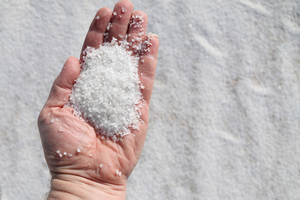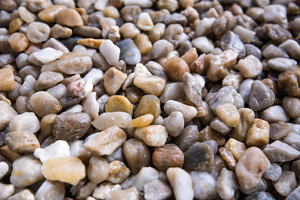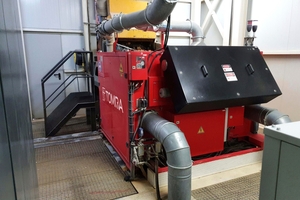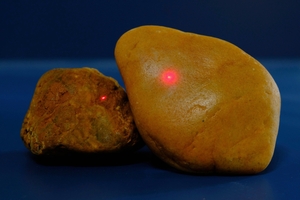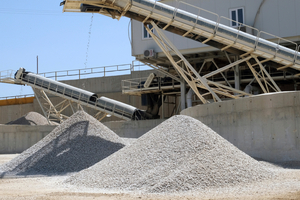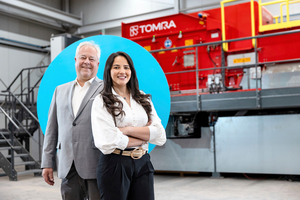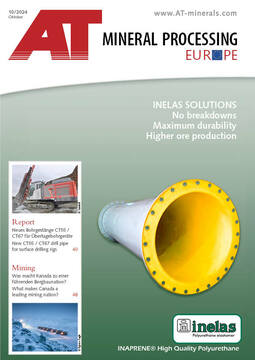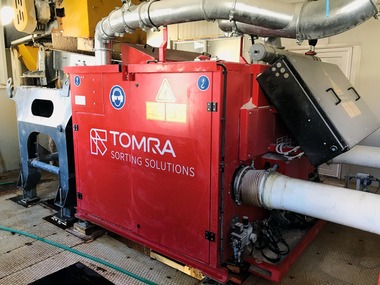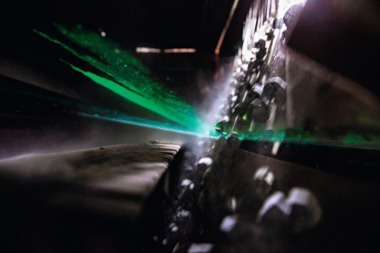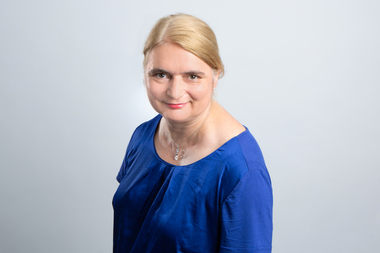Maximum added value from the quarried quartz stone
A growing demand for markets
with different requirements
The quartz market is forecast to continue to grow at an annual rate of around 4 % in the next 5 years driven by a variety of factors. Quartz serves different industries which have a variety of uses for the mineral – and hence varying requirements. One of the main sectors is that of engineered stone for use in the production of kitchen countertops, for example. High-quality white quartz is in very high demand for this application for its extreme resistance to acids, stains and damage, as well as its appealing look. It is also seen as an environmentally sustainable choice because of its abundance in nature and the fact that it can be engineered with minimal waste.
The other key market for quartz is the metallurgical industry, as it is the best source for silicon metal and polysilicon, the semiconductor at the heart of electronics, which is also used for other products, such as photovoltaic cells. The applications in the energy sector, as the world moves toward more sustainable sources such as solar and wind, are driving an increase in the demand for high-purity quartz which is an essential component in solar panels. The technological sector is also expected to be a growing market for high-purity quartz used in electronic devices, whose demand is set to keep rising as the world becomes increasingly connected and more reliant on them. Quartz is also a source of ferrosilicon, which is used in smelters as deoxidizer in the process to produce steel and other alloys – another growing sector. This application doesn´t require the high purity of the previous sectors. Finally, the residue is used in the aggregates industry.
The challenge in quartz sorting
Quartz is one of the most common minerals, found in all forms of rock, but it doesn’t exist in high purity in nature. It comes in colors ranging from white to yellow through to black, which provide an indication of the different contaminants present in the mineral.
The challenge for mining operations is to meet the very specific requirements of the various sectors. For the metallurgical and engineered stone industries, they need to reliably deliver quartz of consistently high chemical purity – and for silicon production and engineered stone manufacturers, a white product with no impurities of the same color, such as feldspar, is also essential. Other metallurgical sectors will allow varying levels of impurities, with the darker quartz with lower purity going to ferrosilicon production.
In addition to meeting these precise requirements, quartz mining operations need to achieve the capacity to meet the rising demand while ensuring their profitability and reducing their environmental impact.
Unlocking the full value of the quartz with color
and laser sorting
TOMRA Mining’s tailored solutions combine its Color and Laser sorters to differentiate the minerals by color, composition and size in order to meet the specific requirements of the mining operation’s customers. This precise sorting delivers the high quality they need while reducing waste and increasing productivity.
TOMRA Mining’s unique Laser sorters are the perfect solution for mining operations that need high-quality quartz regardless of its color. This technology was developed for the TOMRA Food division and has been operating since 1997 in the food industry. Adapting this proven in-house technology for mining applications was a logical development for TOMRA Mining, and the first Laser sorter was purchased by Spanish company Erimsa in 2016 and has been operating successfully since then, delivering consistently high purity quartz for the metallurgical industry.
TOMRA’s Laser sorters use the scattering effect of multiple laser beams to separate a rock containing quartz rock from a similar-looking none. Quartz returns the laser light in a larger area than other minerals, so that it will appear as a glowing crystal while the others don’t show any scattering effect. Large and pure crystals can be clearly distinguished from other rocks or minerals with a smaller crystal structure, regardless of the color or chemical composition. This results in consistently higher recovery rates and quality.
This technology proved to be the solution for Spanish Quartz producer Ferroglobe, which was facing the challenge of sorting quartz ore from other contaminants with the same color properties. “Optical sorting was not solving the issue and we needed to consider separation based on other properties,” explains Fernando Alonso, Mine Director. Tests conducted at TOMRA’s Test Center in Wedel, Germany, on samples demonstrated that its Laser technology was able to differentiate between high-quality white quartz and other contaminants, while color sorting would be unable to separate it. The tests revealed that with the Laser sorter, Ferroglobe would be able to deliver consistently high quality quartz. Thierry Alary, VP Purchasing & Supply Chain at Ferroglobe highlighted: “Operations will definitely improve. By solving that specific problem, sorting becomes more accurate impacting on recovery rate, avoiding contamination and reducing further processing. Additionally, we detected potential for development in other products and sites.”
To achieve the highest purity levels, TOMRA’s Laser sorters can be combined with Color sorting technology. Once the non-contaminated quartz rock is detected by the Laser sorter, the product is exposed to the Color sorter, which uses a high-resolution camera to recognize materials based on their color and shape.
Turkish mining company Mikroman is successfully using this combination of TOMRA Laser and Color sorters to differentiate products to meet the different needs of the four industries it serves: white and light grey quartz with low iron oxide content for engineered stones; grey and yellow for the glass industry; colored for the ferrosilicon and metallurgical sectors; and colored gravel for aggregates. As a representative of Mikroman said: “Before having TOMRA sorters, we were worried about quality and low capacity, but now we have achieved the desired quality standard and we have seen a decrease in waste, which means productivity has increased.”
TOMRA’s Laser sorters can also be equipped with red, green and blue lasers to fulfill simple color sorting tasks, giving mining operations the flexibility to adjust according to changes in the demand switching from one sorting program to the other as needed.
Efficiency, profitability, sustainability
TOMRA’s sorting solutions efficiently remove more waste in the early stages, significantly reducing the material fed into the processing plant and consequently increasing the mine’s capacity. Less material going through the crushing process also delivers significant cost and energy savings. Considering that 3 % of the world’s energy is used to crush rocks, the early ejection of waste can give an important contribution to the industry’s sustainability. In addition, if the material is sorted at the mine, far less material will be transported to the processing plant, further reducing costs and the environmental impact of the operation.
A further benefit of the precise sorting of TOMRA’s unique Laser technology is the competitive advantage it provides for the mining operation which can guarantee a high-quality, homogeneous quartz for its customers.
A tailored solution and effective ongoing support
TOMRA draws on its in-house know-how and field experience in helping quartz mining operations maximize the value of their resource to provide tailor-made solutions that precisely match the specific situation and requirements of the individual customer. Its Test Center plays an important role in identifying the most suitable technology and validate the proposed solution. TOMRA’s support extends beyond commissioning, as its team remains at the customer’s side to ensure the equipment continues to operate at its best and provide fast and effective support as required.

